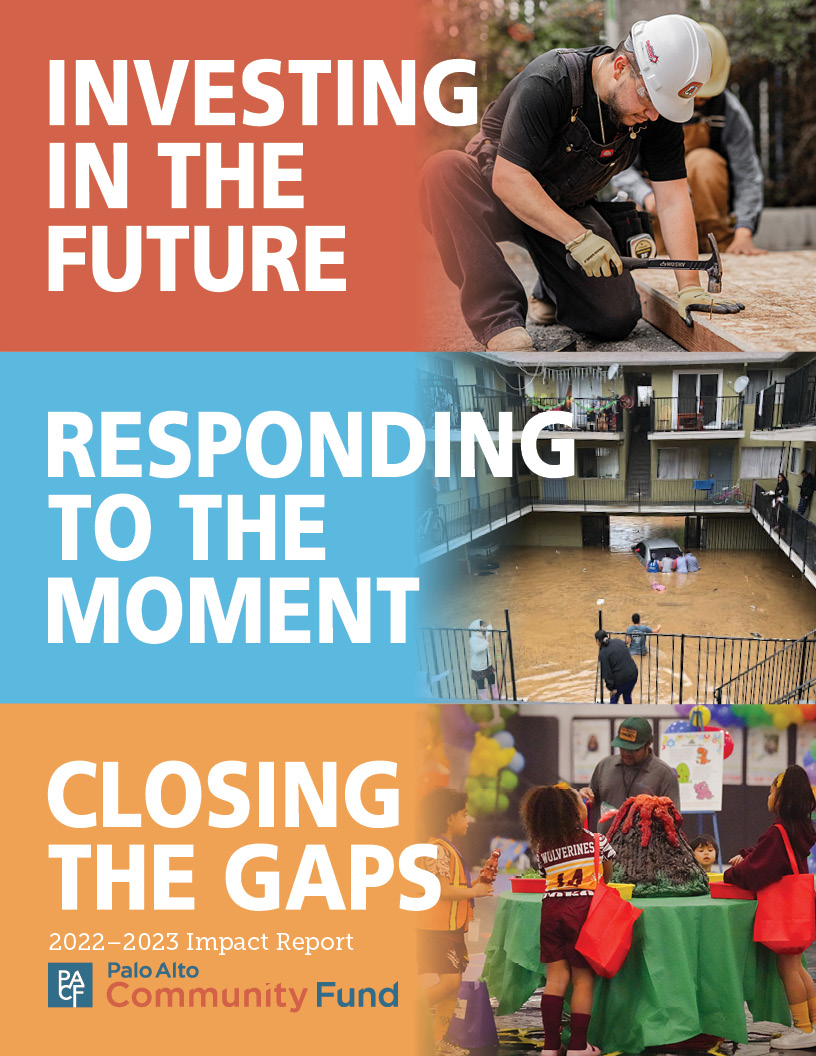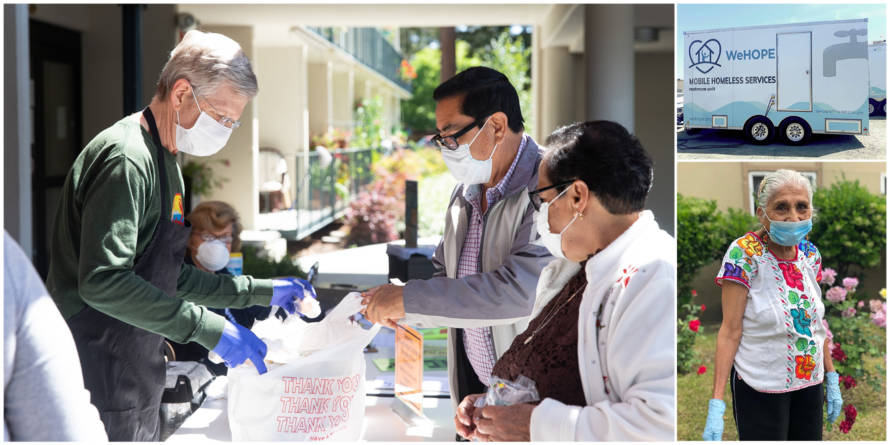This fall PACF had conversations with our nonprofit partners to learn more about their current priorities. Listening to the community and understanding where help is needed is what drives PACF’s giving.
Helping People Stay in their Homes
In 2020, Live in Peace pivoted to support 320+ families to help with the hardships specifically caused by the COVID-19 pandemic, in particular rent relief. In more “normal” times, Live in Peace focuses on helping vulnerable youth meet the challenges of life, school and college. Here are extracts of our conversation with their Executive Director, Heather Stames Logwood.
How did you use the money PACF granted this spring?
We put the money towards our First of the Month Campaign, which helped pay 3 months rent for families in need. Usually we work with landlords directly, except in a few extenuating circumstances such as an undocumented person renting a room for cash. We managed 2 rounds of rent, which significantly helped in the community. In Round 1, we helped 150 families who we already knew and had previously supported in other ways. In Round 2, we were able to take more referrals.
Besides Rent Relief, what else are you focussed on right now?
We are working on an initiative with Ravenswood and Sequoia School Districts in East Palo Alto and East Menlo Park to create workable hubs for school children. We are also working to boost internet connection for many in our community, and we are supporting 79 college youth, 90% of whom have not yet returned to on campus classes and need a place to study remotely.
Do you still have the same needs? What challenges do you see ahead?
Rent is a very pressing need. We hear of kids thinking about dropping out of college and high school to help support their families. We don’t want that. We want to ensure families and students can get back on their feet without having to go backward. We have 150 families vetted for help in East Palo Alto and east Menlo Park who are not yet receiving support. There are about 100 more not yet vetted, and we are working on getting them into our system.
Is there anything else you would like to share?
We are all about young people seeing themselves in the future and having a path to get there. The First of the Month initiative is new for the pandemic, and we are proud we were able to pivot to help the families we were already supporting, plus many others. We have a bike program, and would like to partner with Palo Altans who can donate used bikes to be refurbished. As to the pandemic, we have seen when one person in the family gets Covid the family may be quarantined for months as the virus works through multiple members.
Providing Nutritional and Social Enrichment for Seniors
La Comida, is dedicated to serving Palo Alto area seniors a delicious, warm, sit-down meal each weekday, providing a nurturing environment in which they can commune and build friendships. In 2020, La Comida has risen to the challenge of still providing nutritious meals while working hard to combat loneliness for those most vulnerable in their community. Here are extracts of our conversation with their Board Chair, Bill Blodgett.
How did you use the money PACF granted this spring?
As well as needing to pivot to “to go meals,” we experienced an increase in need by 100 a day, from around 180 to 290 meals per day. We have delivered our portable meals by partnering with Stevenson House, the Masonic Lodge in downtown Palo Alto, Lytton Gardens independent living, and Alta (formerly Palo Alto Housing).
Besides feeding 290 people a day, what else are you focussed on right now?
A key issue is that seniors are not going out. We serve many low income seniors (both Lytton Gardens and Stevenson are low income). Prior to the COVID-19 pandemic, a La Comida lunch was the primary meal of the day for many of our clients AND the only social event. Sadly, we have lost that social part. We started a newsletter for clients to help keep in touch, and we host Zoom conferences with volunteers to keep them engaged. We are at capacity with the current Stevenson House kitchen and we are looking for new space to replace our current downtown Palo Alto location.
Do you still have the same needs? What challenges do you see ahead?
Although our meal demand increased by 50%, we have not received an increase in government funding, although we are optimistic that the County will increase funding to cover at least some of the additional meals. Our incremental meals cost an additional $6,800 per month. Before Covid we just about broke even. We ask our clients to contribute $3 per meal, and about 1/3 are able to do that. We are feeling an increased need in the community, but we are determined to keep feeding all seniors who reach out to us with or without additional government funding. Finally, we are now in the process of finding a replacement downtown serving location. This will entail moving and possibly renovation expenses.
Homelessness and COVID-19 Challenges
Project WeHOPE provides vital services to our homeless community including mobile laundry and bathing facilities, basic medical evaluations, safe emergency shelter, and job training. Needs have grown substantially during 2020 because of the COVID-19 pandemic. Here are extracts of our conversation with Founder and CEO, Pastor Paul J Bains.
How did you use the money PACF granted this spring?
The demand for our services increased 30-40% almost immediately. In July 2019, we provided 911 showers, and our clients ran 363 loads of laundry. But by July 2020, 3,353 people used our services for showers, and our clients ran 1,682 loads of laundry. That’s over a 300% increase year over year. We used the money to pivot to a different delivery of shelter and access to clean water. Physical distancing is a huge problem. The county pays for hotels for our homeless population, but WeHope provides transportation, food, coordination, case managers on site and masks.
What else are you focussed on right now?
We continue to experience a growing need for our mobile hygiene services because of the prolonged uncertainty of the pandemic, but also because of the recent fires. We are supporting the Menlo Park Fire Department with fire victim aid.
This year we have seen a 400% increase in food insecurity. When the pandemic first hit, Stanford University and Facebook donated leftover food (about 80% of our needs) at first but now we have to buy all food for our homeless population.
Do you still have the same needs? What challenges do you see ahead?
It’s not going to get easier anytime soon. We are expecting an increase in homeless numbers in the next three months as rent debt relief and rent moratoriums end.
The public restrooms are still closed. There are not many mobile hygiene providers, so we have really needed to step up. Our motto is “Never retreat only reload.” We have more requests than WeHope can fulfill. This is not a third world country, but when WeHope water trucks arrive, people line up with pans, bowls and bottles for clean water.
Posted Nov. 20, 2020



